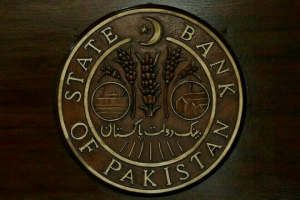The federal secretary finance, Waqar Masood Khan, while talking to bond investors in the UK stated that the cost of Taliban attacks on the Pakistan economy was as much as 5 billion dollars a year in lost investment but disturbingly added that Islamabad is keeping its option to go on another International Monetary Fund (IMF) programme open. He added that with the ongoing operation in tribal areas the situation was finally 'reversing' with Karachi safer than at any time over the last decade.
From the context of top ministry of finance official's statement it is necessary to note three elements that he deemed appropriate to share with prospective Eurobond investors and which economists may well consider as jumping the gun. First, his statement that Pakistan may well consider going on yet another IMF programme with one year of the existing Extended Fund Facility (EFF) still remaining to ease investor concerns that Pakistan will not default on interest payments on its Eurobond issues. This indicates that foreign exchange reserves held by the State Bank of Pakistan today may be compromised by rising levels of domestic and external indebtedness as well as declining exports.
Second, Pakistan has never defaulted on any of its commitments to commercial banks to date, even though it has gone to the Paris Club - not once but twice - to reschedule bilateral loans or convert a portion of them into grants. But given that the Eurobonds so far issued have been well above the global market rate of return by at least 2 percentage points, the investors would no doubt remain interested with or without the prospect of going on another IMF programme. In addition, the Secretary Finance stated that the economic team would determine the amount of the bond issue based on investor interest. There is no doubt that there is immense pressure on the government - because of the IMF programme - to meet its over-ambitious revenue targets, which has implied either raising taxes and/or sell some assets under the privatisation programme. Borrowing from bilateral/multilaterals and from the capital market, may account for higher than envisaged bond issuance is mainly meant for maintaining forex reserves equivalent to at least three months of imports if not more. It maybe recalled that in 2013, two billion dollars of Eurobonds were issued rather than the one billion dollars originally envisaged based on investor interest as well as the need to meet the foreign exchange reserve targets under the EFF which, in turn, increased the debt profile of the country as well as the annual interest payments - a factor that many believe account for the resistance by the Finance Ministry to allow a realistic rupee value.
And finally Waqar Masood Khan claims that the war on terror has been the reason behind lower domestic and foreign investment. Blaming terrorism for low investment alone is not a fair assessment. The Finance Secretary must not lose sight of some other contributing factors: the sustained energy crisis, rising input costs as well as an inequitable and unfair tax system geared towards taxing the already taxed to generate higher revenue too, are also responsible for economic slowdown. These can be regarded as a direct outcome of poor governance as well as flawed economic policies. The government's economic team's focus on meeting the revenue deficit through heavy borrowing from the domestic commercial sector has a crowding-out effect on private sector borrowing. Moreover, inordinate delays in refund payments to exporters have also contributed to poor economic growth as well as investment in the country.
At present, exports are declining, and this is in spite of the GSP Plus status extended by the European Union (EU), effective 1st January 2014. Foreign Direct Investment (FDI) has continuously declined during the two years of the PML-N government, a fact that seriously challenges the Finance Secretary's claims that it is all due to the war on terror. Domestic investment has also declined as banks prefer government papers to lending to private sector. The miserable failure of PML (N) government in improving the electricity situation is also a major reason behind economic woes.
There is no doubt that there is a heavy cost that the country has paid for the war on terror and it is equally significant that the cost is not only paid in terms of loss of human life and physical assets but also due to its fallout on investor confidence. But one would have hoped that the economic team had implemented policies designed to promote growth instead of contractionary policies that include low budget deficit targets focused on raising revenue rather than on reducing unnecessary expenditures.





















Comments
Comments are closed.